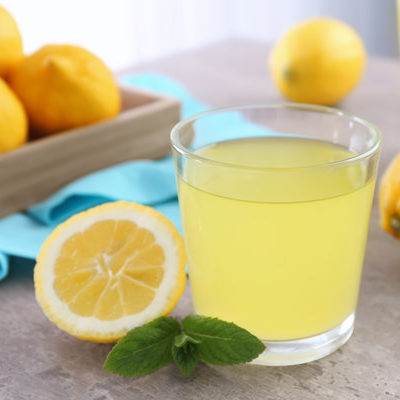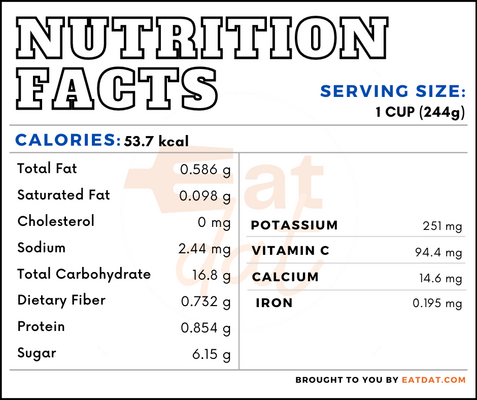
Lemon Juice
What is Lemon Juice?
Lemon juice is the liquid extract of the lemon fruit. The juice is acidic and has a sour taste. The juice of lemons has a variety of culinary uses including making beverages, desserts, and adding it in salads and other foods for a tangy flavor.
- This juice is also often used as a natural preservative in different foods.
- Sometimes, it’s even used for cleaning purposes.
Some popular brands are:
- Lakewood
- Italian Volcano
- Santa Cruz
- 365 Everyday Value
- R.W. Knudsen
- Sicilia
Origin of lemon juice
Lemons are indigenous to India, where they were grown for more than 2,000 years. There is evidence that lemon crops were grown in Iraq, Egypt, and Italy around 700 AD. Lemons later reached China by 1150 AD. Lemons became widespread in the Mediterranean region and then in Europe through the Arab trade.
Christopher Columbus and the Spanish colonizers later took lemons to the Americas. Lemon juice also has a history dating back several centuries in different cultures. Today, the top lemon-producing countries in the world are India, Mexico, China, Argentina, and Brazil.
Commercial production
Lemons are first sorted and selected for juicing. In the processing plant, the fruit is washed and grated. Then, the lemon oil on the peel is recovered by washing with water to create an emulsion. The juice is then extracted, the process being similar to the extraction processes of other juicy citrus fruits. Finally, the juice is filtered to take out the seeds and ruptured juice sacs. It is then packaged or sent on for further use in different products.
Nutrition
One serving (244g) of lemon juice contains:

Lemons and lemon juice, by extension, have very little calories but are chock-full of nutrients. A single lemon can provide 30 mg of Vitamin C. This contains plenty of different flavonoids and phenolic compounds, which are powerful antioxidants. Lemon juice also contains decent levels of calcium, iron, phosphorus, potassium, selenium, folate, choline, Vitamin A, lutein, and zeaxanthin, all of which are essential for good health.
Traditionally, this juice has been used as a treatment for high blood pressure, the common cold, sore throat, and irregular menstruation. Regular consumption of lemon juice can also help lower the risk of stroke, cancer, and asthma, while increasing iron absorption, immune system functioning, and weight loss.
Lemon juice recipes
This lemon extract is extremely versatile and can be used in lots of different dishes. It lends itself to different cuisines and various types of foods. Here are a few recipes:
- Lemonade
- Shikanji
- Lemon Bars
- Lemon Loaf
- Garlic and Lemon Soup
- Lemon Magic Cake
- Lemon French Toast
- Lemon Spinach Risotto
- Herbed Lemon Pork Chops
- Lemon Ice Cream
- Lemon Rice
FDA regulations
The FDA defines lemon juice as the unfermented juice obtained from ripe lemons from which seeds and excess pulp are removed. The acidity of concentrated in this must not exceed 15 percent of the acidity of the finished food. All aspects of the manufacturing of lemon juice are strictly regulated by the FDA, including the packaging and the preservatives that may be used. The labeling of lemon juice as such is subject to strict constraints, too.
References
R. Goodrich, CITRUS FRUITS | Lemons, Editor(s): Benjamin Caballero, Encyclopedia of Food Sciences and Nutrition (Second Edition), Academic Press, 2003, Pages 1354-1359, ISBN 9780122270550, https://doi.org/10.1016/B0-12-227055-X/00244-3.
https://www.sciencedirect.com/science/article/pii/B012227055X002443
Morton, J. 1987. Lemon. p. 160–168, Fruits of warm climates, Julia F. Morton, Miami, FL.
https://hort.purdue.edu/newcrop/morton/lemon.html#Description
Klimek-Szczykutowicz, Marta et al. “Citrus limon (Lemon) Phenomenon-A Review of the Chemistry, Pharmacological Properties, Applications in the Modern Pharmaceutical, Food, and Cosmetics Industries, and Biotechnological Studies.” Plants (Basel, Switzerland) vol. 9,1 119. 17 Jan. 2020, doi:10.3390/plants9010119
https://www.ncbi.nlm.nih.gov/pmc/articles/PMC7020168/
